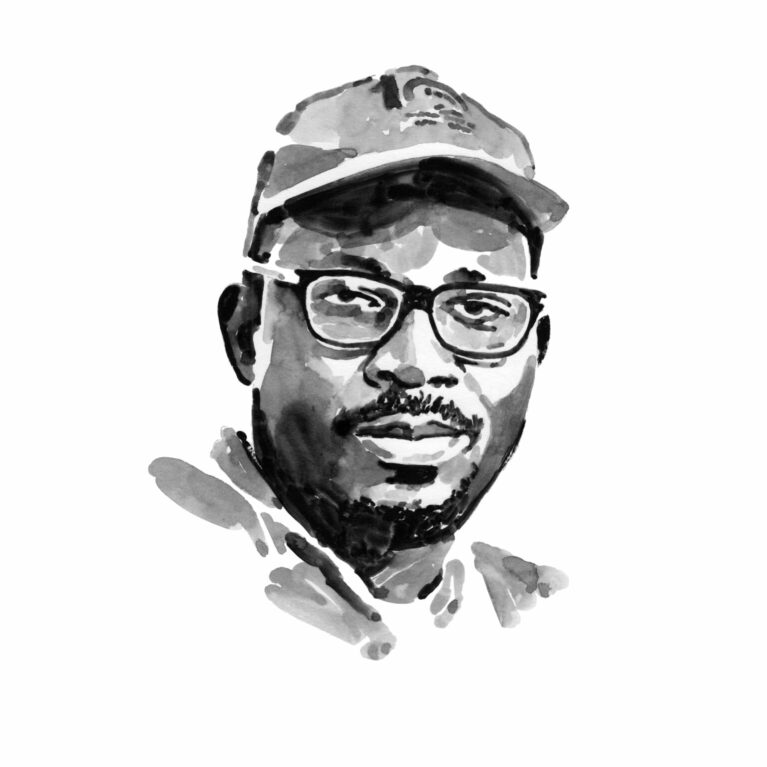Edéya Orobiyi Rodrigue Pelebe

Who I am
As well as being the executive president of the Benin-based NGO Nature Ecologique (ECO-NATURE), I am a researcher and part-time lecturer affiliated to the research laboratory in aquaculture and aquatic ecotoxicology at the University of Parakou, Benin, and the Africa Centre of Excellence in Coastal Resilience at the University of Cape Coast, Ghana. I undertake applied research to investigate real and unaddressed problems identified in the fisheries sector and within fishing communities in order to provide science-based solutions or recommendations to decision-makers. Currently my main research subjects are fisheries science, sustainable aquaculture systems, aquatic ecosystems management and biodiversity conservation, aquatic ecotoxicology and marine protected areas. However, I also have a strong interest in engaging those who use fishery resources to improve their knowledge, awareness levels and capacity to conserve threatened fish species. I have been a principal investigator or associate researcher/consultant for several projects and consultancies at both national and regional levels, and have initiated and successfully implemented conservation projects on threatened fresh, brackish and marine teleost fish species in Benin. Contributing to the protection of critical marine habitats and ecosystems and the conservation of elasmobranchs in coastal Benin is also important to me. I have co-authored more than 40 publications in peer-reviewed journals and have given more than 35 scientific presentations at both national and international events. I provide technical and scientific assistance to several NGOs and international organisations in Africa and am strongly committed to using science as a powerful tool to contribute to the well-being of populations and the preservation of aquatic resources and biodiversity in Africa.
Where I work
Benin is a West African country located in the Gulf of Guinea, with a surface area of 114,763 square kilometres (44,310 square miles). It is bordered to the north by the River Niger and Burkina Faso, to the west by Togo, to the east by Nigeria and to the south by the Atlantic Ocean. Its 125-kilometre (78-mile) stretch of coastline includes five coastal municipalities: Sèmè-Podji, Abomey-Calavi, Cotonou, Ouidah and Grand-Popo. This project will be implemented mainly in Cotonou at the artisanal fishing harbour and its fish market. However, some activities will be conducted in Ouidah and Grand-Popo. Built in 1972, the Cotonou Artisanal Fishing Harbour (POPAC) is the only structured fishing harbour in Benin. It is located in the dock on the east side of the industrial fishing port.
What I do
I am responsible for monitoring and evaluating the various aspects of the project and ensuring that they are on track to meet our objectives. With the support of the ECO-NATURE team, I regularly check on progress. The work involves, among other activities, conducting public consultations, developing a survey questionnaire, recruiting and training monitors, collecting and processing data, developing training materials and conducting a training workshop for fishers and a capacity-building workshop for fishery managers, compiling species identification guides and engaging with online media.
